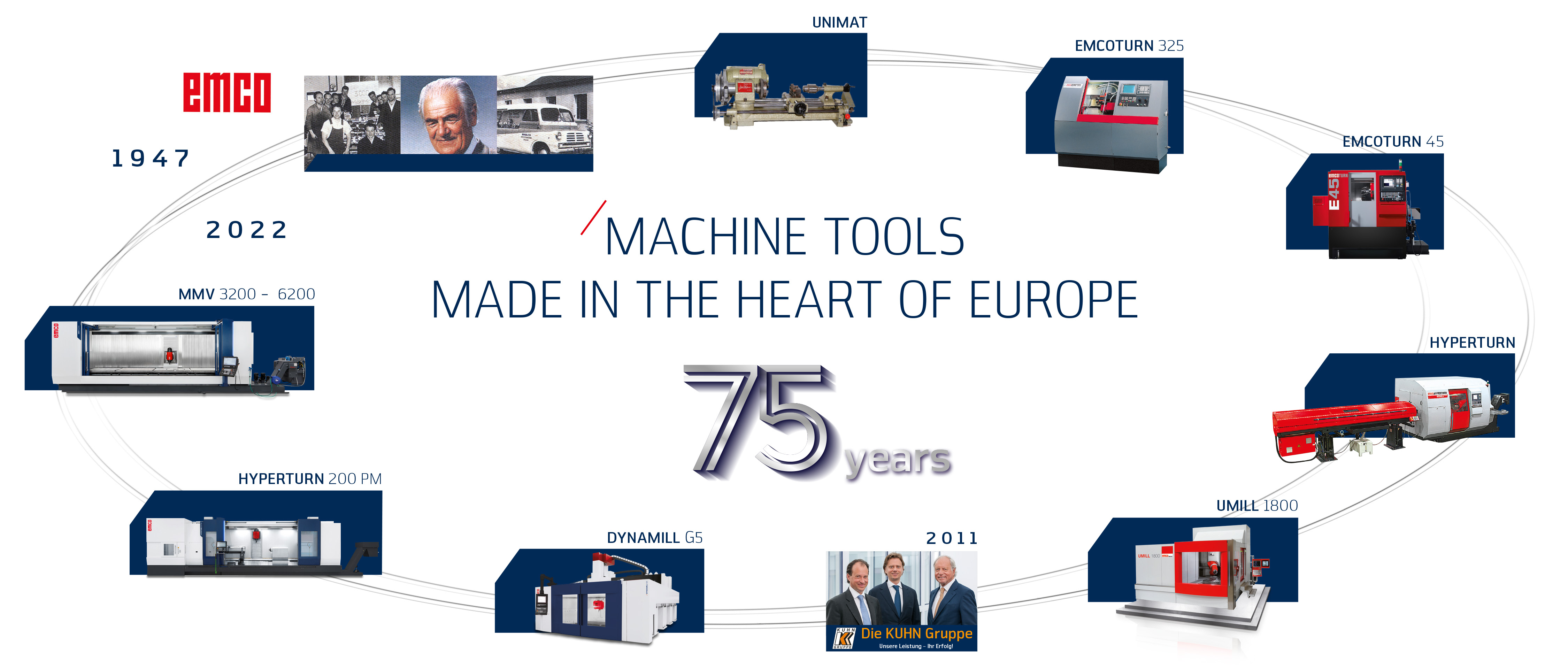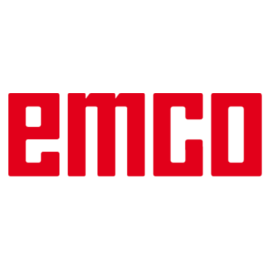It is in 1947 when engineer Karl Maier founds a small workshop where he builds lathes. In close dialogue with potential customers, he first develops small lathes and then expands his product range by hardness testing machines. By the end of the 1970s, his son Ernst Alexander takes over the company which, after growing steadily until the early 1990s, becomes an established manufacturer of further machines and equipment.
Heavily hit at that time by the economic crisis, the machine builder is taken over by an international industrial holding company which shifts the focus onto core competencies in the areas of conventional and CNC machine tools for production and training purposes. By the way, close cooperation with customers and the adjustment of the development focus resulting therefrom are still at the centre of the corporate strategy. Developed at that time to allow for highly productive complete machining, the EMCOTURN 332 and the EMCOTURN 465 are the first multi-channel machine tools equipped with two tool systems and two turning spindles.
Firmly established on the market, Emco continues to experience the positive development of the first decades. With the takeover of the FAMUP and MECOF companies in 2004 and 2011 respectively, which has certainly contributed to the success, the way towards becoming a turnkey provider for machining operations had been paved. The upward trend was further boosted in 2011 when the EMCO Group was taken over by the Salzburg-based Kuhn Holding.
The future starts now
Employing around 800 people at five production sites, EMCO has become one of Europe's leading machine tool manufacturers. The company continuously invests in its locations - most recently with the allocation of one million Euros for the expansion of EMCO Famup, the production facility in San Quirino, Italy. The positive economic development which makes such investments possible in the first place is promoted, above all, by sophisticated turning and milling centres which come in a wide range of designs. However, the group of companies also attaches great importance to training machines equipped with state-of-the-art control technology and different types of courseware.
'For 40 years, young people have worked with training machines to become familiar with the realm of machining and the world of EMCO machines. Training organisations use them as frequently as vocational schools or technical colleges and universities. This is where technophiles get to know the advantages of our technology, which is something they will appreciate later on,' explains managing director Dr. Ing. Stefan Hansch.
A straightforward introduction into the operation and programming of CNC machines is of paramount importance, and something that is ensured by EMCO's user-friendly training machines. The control unit is a telling example. Running on an industrial PC, it emulates the models of the major CNC providers - Siemens, Fanuc and Heidenhain. Trainees and teachers alike are thus able to learn how to handle all common user interfaces. This makes EMCO the world's leading manufacturer in the area of CNC training.
Combined machining is gaining in importance
A solution provider focusing on the productivity of the entire machining process, EMCO has succeeded in strengthening its position as a turnkey provider. Stefan Hansch believes that this is based, in particular, on the effective merger of all competencies. The success of this strategy is reflected in many areas. The long-standing experience in FEM analyses for large-scale machines that Mecof's experts can fall back on has been translated, for instance, into the development of a great variety of machine types. The result: All machining centres manufactured by the Emco Group now achieve FEM-optimised stability and precision.
Another example: In 2014/2015, engineers and technicians from all EMCO sites joined forces and developed the Hyperturn 200 Powermill, a combined turning and milling centre which quickly established itself in the market for the complete machining of medium-sized, complex components in one set-up. Equipped with a main and counter spindle as well as with a powerful milling spindle which is set up on a pivoting axis and used for turning, drilling, milling and gearing operations, the machine is able to manufacture even the most complex workpieces in one setup. Thus, operators avoid delay times caused by machine changes and increase the precision applied to the product.
'Our developers have succeeded in merging the best of both machining worlds into one machine and turning a slant-bed turning machine into an extremely versatile travelling column turning and milling centre,' explains CEO Hansch, who is proud of this cross-location cooperation. The concept has already been translated into further machines from the Hyperturn series - the smaller Hyperturn 65 Powermill and the Hyperturn 100 Powermill.
Solution provider for machining tasks
Emco is committed to being the best solution provider when it comes to machining tasks. All further developments are based on this aspiration. Besides the expansion of combined machining, the integration of automation solutions and innovative measurement technology will play an important role. Dr. Hansch reckons that Industry 4.0 is another important component. 'In cooperation with our partners, we are already offering different digitisation packages including, amongst other features, methods for predictive maintenance.'
Up to 500 data points relating to individual hardware and software features can already be gathered on a regular basis. The changes detected allow us to draw conclusions about the wear of the spindle bearings, for instance. Thus, they can be replaced in good time, which will in turn avoid unplanned downtimes. However, Emco sees that as the mere beginning of a future that started as early as 75 years ago.

